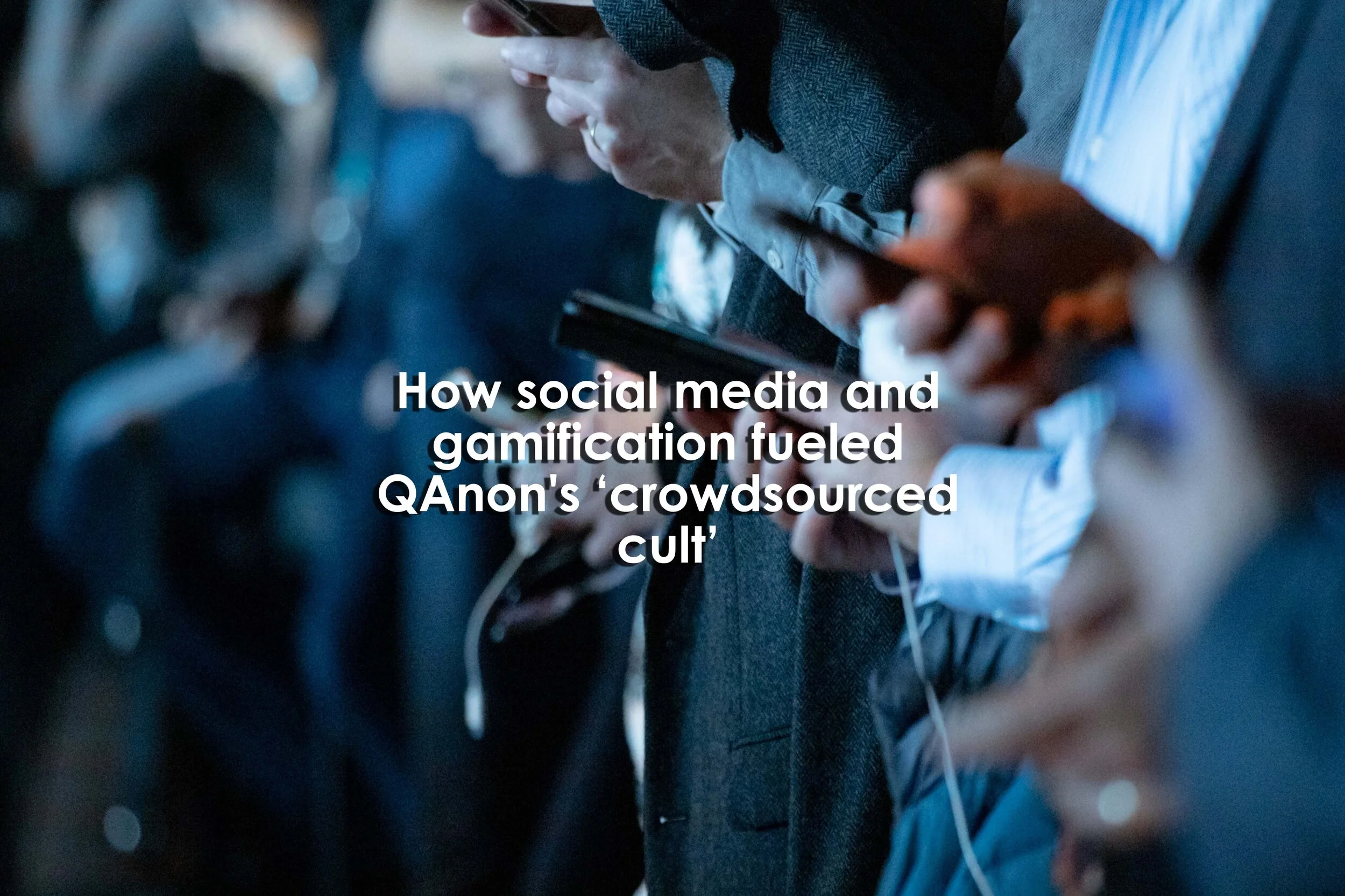How social media and gamification fueled QAnon's ‘crowdsourced cult’
How social media and gamification fueled QAnon's ‘crowdsourced cult’
How social media and gamification fueled QAnon's ‘crowdsourced cult’
By Chris O’Brien
October 9, 2020
Summary
The report highlights the role of social media platforms such as Facebook and Twitter but also points to underlying social conditions that have allowed so many people to be seduced by QAnon's library of conspiracy theories.
QAnon is like a hub of conspiracy theories, attaching itself to ideas ranging from anti-vaccine beliefs to climate change skepticism to mobilize people and bring them into the larger conspiracy fold.
QAnon is unlike a classic cult in that there is not a single, charismatic leader defining a philosophy to attract followers.
"These are typically people who have traditionally felt disenfranchised and powerless about the world around them. This is their way of essentially taking back some power: 'We're gonna take down these sinister forces through our activism.' It's easier for people who feel that way, whether it's a classic cult or a terrorist organization, to be taken in by those groups. It is a hoax, but it is a crowdsourced cult designed to exploit these social fault lines. One thing that needs to be understood and talked about more is that QAnon is an expression of political disenfranchisement."
QAnon activists aren't inventing these economic and social divisions
"In any conspiracy that we look at, even if we're not looking for QAnon, QAnon is there as an amplifier. Across multiple campaigns that we've analyzed over the last 16 months, QAnon always pops up."
While the topics QAnon covers are vast, common strategies are being used to ensnare people - chief among them gamification.
While QAnon may be crowdsourced, more active core participants drop puzzles or clues on various websites or social platforms hinting about some larger truth for those that solve them.
"Social media provided the perfect platform around the world to throw fire on a lot of the QAnon fringe conspiracies. Without Facebook and Twitter, I can unequivocally say that it wouldn't be nearly as bad. The internet has been around for a long time, long enough for a lot of these things to have occurred. But the thing that we see here today is that without platforms like Facebook or Twitter, these kinds of conspiracy theories, or these kinds of ideologies, simply can't move to gain the traction that they would get with traditional things like internet email chains. Those can't get the type of traction because they don't have this kind of multi-network approach to how social platforms work."
QAnon can identify these groups using Facebook's audience targeting tools, and Khaled wondered if the company would be able to detect such content.
Reference
O'Brien, C. (2020, October 09). How social media and gamification fueled QAnon's 'crowdsourced cult'. Retrieved October 10, 2020, from https://venturebeat.com/2020/10/09/how-social-media-and-gamification-fueled-qanons-crowdsourced-cult/


